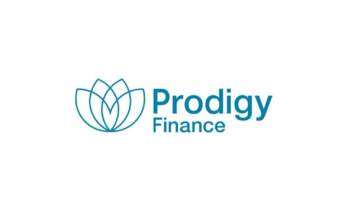Understanding the Basics of Personal Finance
Personal finance is a crucial aspect of everyday life that encompasses managing one’s finances effectively to achieve financial stability and growth. For beginners eager to navigate their financial journey, grasping the fundamental principles is essential. Key concepts such as budgeting, saving, investing, and debt management are foundational elements that form the bedrock of sound personal finance practices.
Budgeting is the process of creating a plan for managing income and expenses. A well-crafted budget allows individuals to allocate funds toward essential and discretionary spending, ensuring they live within their means. Beginners should start by tracking their income and expenses meticulously, then designate specific amounts for necessary costs like housing, food, and transportation, as well as savings and investment goals. By adhering to a budget, individuals can gain a clearer picture of their financial status and make informed decisions.
Saving is another pillar of personal finance. Establishing an emergency fund and setting aside money for future goals can provide a critical safety net during unforeseen circumstances. Financial experts generally recommend saving at least three to six months’ worth of living expenses. Furthermore, individuals should consider using high-yield savings accounts or certificates of deposit (CDs) for their savings to maximize interest gains over time.
Investing, though often perceived as daunting for beginners, is a crucial strategy for wealth accumulation. Understanding the different investment vehicles—such as stocks, bonds, and mutual funds—can empower individuals to make informed choices tailored to their risk tolerance and financial objectives. Furthermore, prioritizing long-term investments can help benefit from compounding interest over time.
Finally, effective debt management is vital for maintaining a healthy financial profile. Beginners should aim to minimize high-interest debt and prioritize repayment strategies, such as the snowball or avalanche methods. By mastering these core aspects of personal finance, individuals will establish a strong foundation that will serve them well in their journey toward financial independence and success in 2025 and beyond.
Creating a Realistic Budget finance

Establishing a realistic budget is a cornerstone of effective personal finance management, particularly for beginners seeking to attain financial stability in 2025. A well-crafted budget allows individuals to track their income and expenses systematically, ensuring they do not exceed their financial capacity. To start, one should itemize all sources of income, including salaries, bonuses, and any side incomes.
Next, it is crucial to differentiate between fixed and variable costs. Fixed costs are regular expenses that remain constant each month, such as rent or mortgage payments, insurance, and salaries. In contrast, variable costs can fluctuate significantly, encompassing groceries, entertainment, and other discretionary spending. By understanding these distinctions, individuals can better allocate their funds and identify areas for potential cost-cutting.
In 2025, various budgeting tools are available that simplify this process for users. Applications like Mint, You Need a Budget (YNAB), or personal finance software provide features to track expenses, categorize spending, and even set savings goals. Leveraging technology enhances not only the budgeting process but also encourages a proactive approach to tracking one’s financial status. Additionally, these platforms often provide insights through visual charts and alerts when nearing budget limits.
To successfully stick to a budget, consider implementing practical methods such as setting clear financial goals, automating savings, and revisiting the budget regularly. Reviewing spending habits monthly can highlight areas for improvement, enabling necessary adjustments to accommodate changing life circumstances or financial aspirations. As individuals grow and their financial situations evolve, it is essential to remain flexible and willing to modify the budget. This adaptability ensures that the budget remains an effective tool for achieving lasting financial wellness.
READ ALSO How Aboki FX Helps Nigerians Track Accurate Exchange Rates
Saving for Short-Term and Long-Term Goals Finance
Establishing financial goals is a crucial step for anyone, particularly for beginners navigating the complexities of personal finance in 2025. Setting both short-term and long-term savings targets allows individuals to create a balanced financial plan that addresses immediate needs while also preparing for future aspirations. Short-term goals may include saving for a vacation, purchasing new appliances, or building an emergency fund, while long-term goals could involve saving for retirement, a home purchase, or children’s education.
To save effectively, it is essential to understand the importance of an emergency fund. This fund acts as a financial safety net, covering unexpected expenses without disrupting one’s overall financial strategy. Financial experts often recommend saving three to six months’ worth of living expenses to ensure liquidity during unforeseen circumstances. This approach not only provides peace of mind but also minimizes reliance on credit cards or loans during emergencies.
When prioritizing different savings targets, individuals should employ the SMART criteria: Specific, Measurable, Achievable, Relevant, and Time-bound. This method helps in developing realistic and attainable goals. For instance, if a beginner wishes to purchase a car within two years, breaking the goal down into monthly savings targets will provide a clearer path towards achieving it. Additionally, regularly reassessing goals and timelines is vital as personal circumstances and economic conditions can change. In 2025, with the rise of digital budgeting tools and apps, tracking savings progress has become more accessible, allowing individuals to adjust their plans as necessary.
Ultimately, creating a balanced approach to saving for both short-term and long-term goals contributes to financial security and stability. By understanding the significance of an emergency fund and employing clear strategies to prioritize savings, individuals are better prepared to meet their financial objectives.
Smart Investing: Getting Started in 2025

As individuals embark on their journey into personal finance, one of the most crucial steps is understanding the world of investing. In 2025, numerous investment vehicles are available to beginners looking to grow their wealth. The three primary categories include stocks, bonds, and cryptocurrencies, each offering distinct opportunities and risks.
Stocks represent ownership in a company, and investing in them allows individuals to benefit from the company’s growth. Beginners can start by researching established companies or explore exchange-traded funds (ETFs), which offer diversification and lower risk. Bonds, on the other hand, are loans made to corporations or governments, providing fixed interest payments over time. They tend to be less volatile than stocks, making them an attractive option for conservative investors seeking stability.
Cryptocurrencies have gained immense popularity and can be an exciting, albeit risky, investment choice. Platforms like Bitcoin and Ethereum have revolutionized the way we view digital assets, but it is essential for new investors to conduct thorough research and understand the market dynamics. Given their volatility, cryptocurrencies may not be suitable for everyone, highlighting the need for careful consideration.
To effectively start investing, it is crucial for beginners to prioritize diversification. By spreading investments across different asset classes, such as stocks, bonds, and real estate, individuals can manage risks effectively. This strategy helps insulate portfolios against market fluctuations. Additionally, seeking professional financial advice can prove beneficial, especially for those unfamiliar with investment principles. Financial advisors can tailor strategies to suit individual risk tolerances and long-term goals.
In conclusion, embarking on the investment journey in 2025 requires understanding various vehicles, such as stocks, bonds, and cryptocurrencies. With a sound strategy, informed decisions, and the willingness to learn, beginners can successfully grow their wealth over time.




